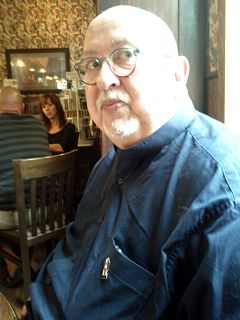A Quote by Isaac Bashevis Singer
There are 500 reasons I write for children.... Children read books, not reviews. They don't give a hoot about the critics.... They don't read to free themselves of guilt, to quench their thirst for rebellion, or to get rid of alienation. They still believe in God, the family, angels, devils, witches, goblins, logic, clarity, punctuation, and other such obsolete stuff.... They don't expect their beloved writer to redeem humanity. Young as they are, they know that it is not in his power. Only the adults have such childish illusions.
Quote Topics
About
Adults
Alienation
Angels
Believe
Believe In God
Beloved
Books
Childish
Children
Clarity
Critics
Devils
Expect
Family
Free
Get
Give
God
Guilt
His
Hoot
Humanity
Illusions
Know
Logic
Obsolete
Only
Other
Power
Punctuation
Quench
Read
Reasons
Rebellion
Redeem
Reviews
Rid
Still
Stuff
Themselves
Thirst
Witches
Write
Writer
Young
Related Quotes
Children have no use for psychology. They detest sociology. They still believe in God, the family, angels, devils, witches, goblins, logic, clarity, punctuation, and other such obsolete stuff. When a book is boring, they yawn openly. They don't expect their writer to redeem humanity, but leave to adults such childish allusions.
I wish that the adults who are 'in power' cared more about what their children read. Books are incredibly powerful when we are young - the books I read as a child have stayed with me my entire life - and yet, the people who write about books, for the most part, completely ignore children's literature.
I like reading books about kids where there weren't really many adults, where they didn't need an adult to come and solve the problems for them. They could use their own ingenuity, use their own talents to solve whatever the issue was. And I like that still. I think that children want to read about heroic children. They don't want to read about children that have to be saved all the time.
Children make better readers than adults. They read as carefully as I write; adults read as a means of getting off to sleep. I get letters saying 'I have read your book seventeen times.' If you're an adult novelist and you get that letter, you should be afraid. You're being stalked. Kids always read them seventeen times!
Kids not only need to read a lot but they need lots of books they can read right at their fingertips.They also need access to books that entice them, attract them to reading. Schools...can make it easy and unrisky for children to take books home for the evening or weekend by worrying less about losing books to children and more about losing children to illiteracy.
Every generation likes to think that children don't read as much as they used to when they were young! You listen to some adults saying they were going around reading 'Ulysses' when they were seven or eight! I think children are voracious readers if you give them the right books and if you make those books accessible to them.



































